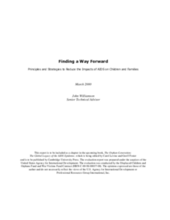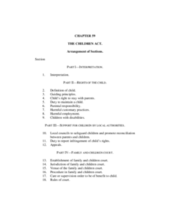Guardianship
Displaying 111 - 112 of 112
Provides a multi-level approach for the analysis and development of context-specific interventions in communities affected by HIV/AIDS epidemic. Includes discussion of microfinance services, and highlights several community-based programs.
The Children Act, Chapter 59 took effect in Uganda on 1 August, 1997.


